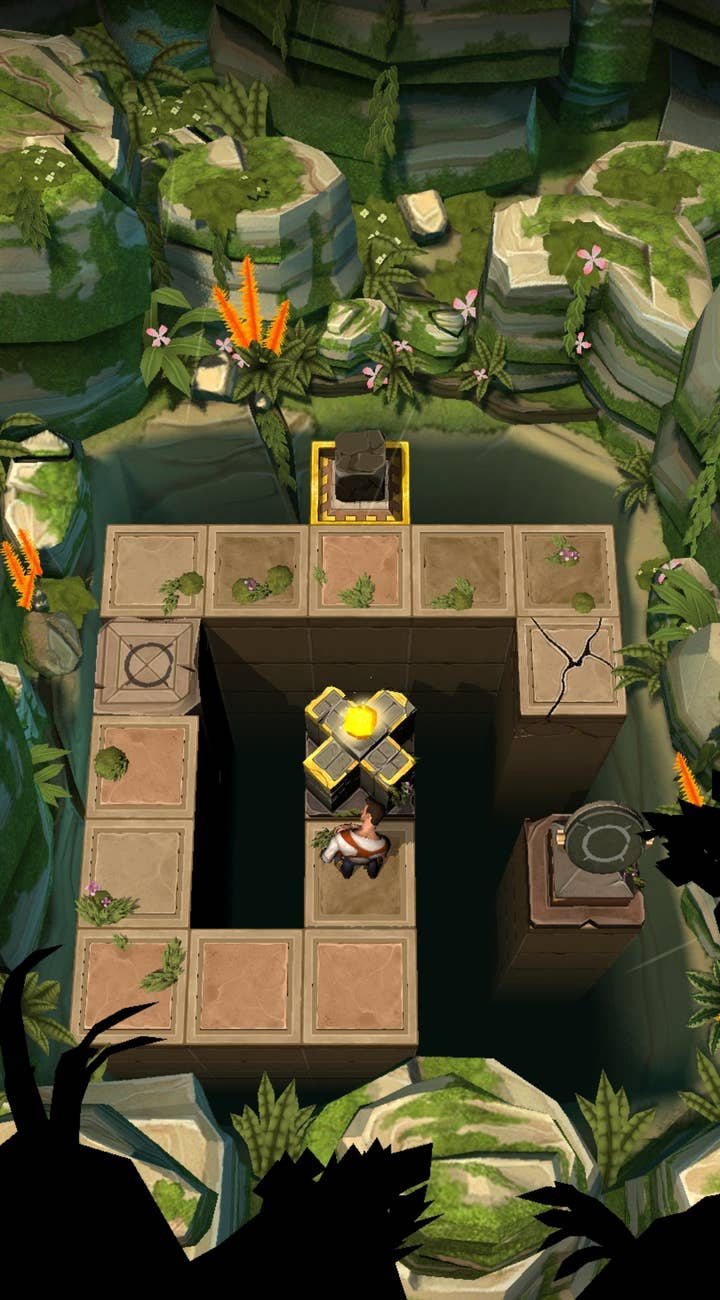Console IP remains a bad fit on mobile | Opinion
Sony plans mobile titles based on PlayStation IPs - but putting major console titles on smartphones is not an easy win
If you're mostly someone who plays games, creates games, or works on games on console or PC platforms, it can sometimes be easy to forget the extent to which mobile gaming has turned the whole industry on its head over the past decade.
In a relatively short space of time, smartphones have become pretty much the dominant gaming platform in terms of both revenues and sheer numbers of engaged consumers; by some counts, the mobile gaming space is worth about twice as much as the rest of the industry put together right now.
The only reason that doesn't feel like a tsunami crashing over the industry in slow motion is because, well, it isn't: there's little or no evidence that mobile has cannibalised users or revenues from platforms like PC and console, which have continued to grow robustly even as mobile gaming has grown from humble beginnings to its current leviathan status.
Tie-in titles, side stories, games that help to catch people up on the events of previous series entries... Things like these could well make sense for Sony on mobile
To a large extent, that allows mobile games and games on more traditional platforms to co-exist without ever really bumping up against each other. Some PC and console games have tried to co-opt mobile gaming ideas about monetisation and player retention, with varying -- but usually minimal -- degrees of success; some mobile games have tried to use IPs from console titles to sell themselves, usually with similarly uninspiring results. Some very rare titles are sufficiently platform-agnostic to actually work across mobile and other platforms, which can work out very well for the right games, though those are few and far between. Generally, though, mobile games are mobile games, quite different and independent from PC and console games in terms of their design, their monetisation strategies and their intended audiences.
The problem with this separation tends to arise not at a creative level, but at a business level. Put bluntly, investors in traditional game companies (along with a fair few executives) have a habit of looking at the growth of the mobile sector and having fits of vapours over the fact that their company isn't capitalising on that growth. It doesn't really speak well of those investors' understanding of what they've actually invested in that they assume competence in traditional games will carry over so seamlessly into mobile games -- but it's a very common viewpoint nonetheless, and it holds some weight in publishers' deliberations. Hence almost any discussion of a publisher or platform holder's strategy has to mention mobile in some capacity, even if it really doesn't fit with anything else the publisher is doing -- it has to be there on the strategic roadmap all the same.
The latest major example of this, of course, is Sony, whose corporate strategy briefings this week included a number of interesting, albeit generally not too specific or concrete, bits and bobs about the PlayStation business: the PS5 standard model will be at break-even on hardware sales shortly; Sony's cutting-edge AI research division is doing something or another for PlayStation; and so on.

Nestled in there was the almost obligatory statement about mobile; Sony's planning to work on mobile games which "complement" its title line-up on PlayStation platforms by leveraging that IP on mobile platforms. On one level, that's quite a big announcement to tuck away in an investor relations presentation -- Sony's going to invest in making mobile games based on its IP library -- but on the other hand, it's got a pretty strong whiff of deja vu about it.
It depends, of course, on exactly what Sony means by "complementing" its existing line-up, a word that's doing a lot of heavy lifting in the presentation where these comments were made. It could mean next to nothing, suggesting we'll just see Sony try to make some mobile games based on AAA IPs -- or it could mean that it actually wants these mobile games to support and build interest in games for PS5, which would imply something more like mobile companion titles to major AAA releases, or mobile games and apps that tie in to the live service games Sony is also now very, very keen on.
Either way, this is familiar stuff to a great extent -- hell, some of it is stuff Sony itself has done before -- and while it's important to acknowledge that Sony isn't promising the moon on a stick here, so much as nodding to something it's steadily working on off to one side, it's also worth pointing out that nobody has yet really figured out how to make any of these ventures worthwhile.
Doing mobile games based on AAA IP is the answer many publishers have come up with to this problem, or opportunity, that they can't simply ignore. They build companion games, and spin-off games, and sometimes some ill-advised retro ports, and honestly? None of them do especially well. The mobile market is simply far more different from the console market in far too many important ways.
Mobile is a market all of its own, and the potential crossover points for console AAA titles are far narrower and less interesting than had originally been hoped
One of the most important of those differences from the perspective of console publishers is that, with some admittedly major exceptions (hi, Pokémon), mobile consumers don't seem to care all that much about big console IPs. Mentioning Pokémon as the exception to the rule actually drives home the point -- it's a decades-long cross-media consumer phenomenon spanning multiple generations of kids and the young(-ish) adults they became, and no matter what other franchise you're thinking of right now that you reckon could be an equally big mobile hit, I assure you, it isn't hitting all those marks.
Even Nintendo's other IPs aren't in the same ballpark. It's worth noting just how much of Nintendo's former interest and enthusiasm for mobile has evaporated since the success of Switch, and while being back on top in the console game is a major reason, the fact that none of its other titles enjoyed more than the merest fraction of the success of Pokémon Go undoubtedly also played a role. (Nintendo, incidentally, is a prime example of a company that often seemed to be engaging with mobile largely to please the insistence of its investors, rather than out of much genuine conviction on the part of the company itself.)
While Sony no doubt hopes that it can win some slice of the mobile gaming pie for itself, the way it worded its mention of mobile games in its strategy briefing suggested -- to me, at least -- that the company is more interested in mobile as a way to support and drum up interest in its console titles, and that's actually not a bad strategy. It recognises that while the console gaming audience certainly own and use smartphones, they are not the same audience as the mobile gaming audience. Moreover, it acknowledges that the mobile gaming audience isn't just biding its time playing mobile titles while it waits for "real" games to come along from consoles and PCs, which is the rather paternalistic notion a lot of traditional game publishers held about mobile for a very long time.
Tie-in titles, side stories, games that help to catch people up on the events of previous series entries... Things like these could well make sense for a firm like Sony on mobile platforms. Even so, caution is required; a few years ago we saw a spate of games which forced players to engage with mobile free-to-play companion titles in order to earn rewards in the main console game. They weren't universally hated (and there might be a smart way to do this, especially if the companion title is balanced around the idea of giving a leg-up in the main game to time-poor gamers), but in general this approach was hugely unpopular and did no favours for the console games it was meant to improve and support.
All the same, it's hard to cast an eye back over the experimentation and trial and (mostly) error that's defined attempts to push console gaming into the mobile space in the past decade and not conclude that this just isn't the heavenly match investors and executives dream it to be. If anything, it seems likely that Sony's other attempt to push games out beyond their current medium -- by partnering to turn its titles into movies and TV shows -- represents a much bigger opportunity for Sony's gaming division to build its brand, audiences and revenues in the next five to ten years. Shows like The Witcher (and the less celebrated but also excellent Castlevania animated show) have thrown open the floodgates on premium TV based on game franchises, and Sony is well-positioned to capitalise on this.
Mobile might once have looked like an easier path than something as (formerly) inaccessible as premium TV, but the past decade has made it very clear that mobile is a market, an audience and in some regards a medium all of its own, and the potential crossover points for console AAA titles are far narrower and less interesting than had originally been hoped. Unless Sony is really willing to go the whole hog, launching mobile-optimised cross-play versions of its major service game titles, a la Fortnite (and I'd make a pretty confident bet that the still cross-play averse company it is not willing to go anywhere near that hog), its mobile strategy will likely remain in the realms of dabbling and lip service for some time to come.

